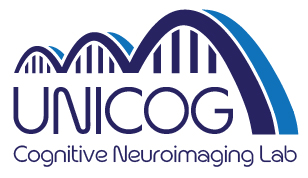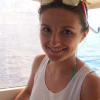
Research
We aim to provide an understanding of higher-order cognitive functions, focusing on perception, learning, inference, and decision making, with an integrated approach that bridges across scales, from molecules to neurons, large populations of neurons, cortical and cortical-subcortical circuits, complex cognitive processes and behavior, using computational modeling. Our computational approach ranges from abstract models of the quantities that ought to be computed by the brain (e.g. predictions in a task), to algorithmic descriptions of these models and the mapping of their constituents onto brain structures and brain dynamics, to the neural code of internal representations.
The team
Our team is part of the UNICOG laboratory. The team is located in two places in the Paris region, France: Neurospin, a brain imaging center (including MEG, MRI at 3T, 7T and 11.7T), and the Institute for Neuromodulation (INM) in the Sainte Anne Hospital, dedicated to innovating in psychiatry using interventional methods (including intracranial EEG, voltammetry, electrical stimulation, pharmacology). Our principal investigators contribute their expertise in various, complementary fields and methods.
Find more about the team on our website.
Principal investigators
Florent MEYNIEL – website – publications
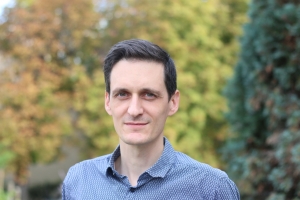 Florent is the team leader. He has been a CEA researcher since 2016 with a joint appointment at the GHU in 2023. He was trained as a biologist and then cognitive neuroscientist at ENS Paris. He specialized in human functional brain imaging and obtained his PhD at the Paris Brain institute in 2013. He started developing an interest for computational approaches, notably Bayesian inference, during a postdoc at Neurospin.
Florent is the team leader. He has been a CEA researcher since 2016 with a joint appointment at the GHU in 2023. He was trained as a biologist and then cognitive neuroscientist at ENS Paris. He specialized in human functional brain imaging and obtained his PhD at the Paris Brain institute in 2013. He started developing an interest for computational approaches, notably Bayesian inference, during a postdoc at Neurospin.
Evelyn EGER – website – publications
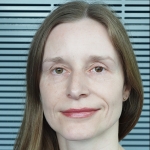
Visual scenes convey a multitude of different types of information, some defined at the level of individual objects (such as their category or specific identity), and others at the level of groups of objects (such as their number). We understand all of these quickly and intuitively, but this apparent ease does not do justice to the complexity of the computations involved.
What are the brain representations underlying our perceptual experience of such high-level visual entities, and how do they arise from bottom up or top–down processing mechanisms? Which characteristics of neuronal representations along the cortical hierarchy determine aspects of behavioral discrimination ability, and how are they altered in developmental disorders?
To tackle these questions, my work is combining non-invasive brain imaging in humans (such as ultra-high-field fMRI) with psychophysics and aiming to link these to computational approaches based on artificial neural networks.
Philippe DOMENECH – publications
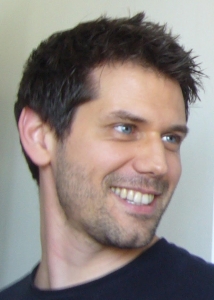
I’m interested in how the brain supports flexible and adaptive behavior in changing and uncertain environments. More specifically, I currently focus on the study of how the human brain identifies the most adaptive behavioral strategy, sets the balance between exploiting and actively exploring its environment, while monitoring its alternatives.
To tackle these issues, I use tools from computational neurosciences and machine learning, combined with neurophysiological/imaging recordings (MRI, EEG/MEG, intracranial EEG) of human brain activity while it’s engaged in dynamically controlling decision-making processes. We are currently developing ML-augmented voltammetric recordings in humans with the overarching goal to clarify the computational role of key monoamines in the algorithmic models we developed to account for strategic inference.
I trained as a biologist at ENS Lyon, then defended in 2011 a PhD in computational cognitive neuroscience at ISC Marc Jannerod focusing on models of perceptual decision-making and how it applied to the field of neuroeconomy. I became interested in coupling algorithmic models of choices with intracranial recordings in humans during my postdoc at ENS (DEC-LNC2). From 2014 to 2022, I continued and developed this line of research at ICM. Since 2022, I have been the medical and scientific director of the neuromodulation institute. As a psychiatrist specializing in treatment-resistant OCD/depression and neuromodulation, I’m also interested in using the same approach to study the computational underpinning of neuropsychiatric diseases.
Joao BARBOSA – website – publications
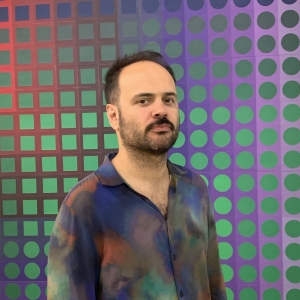
I have a background in computer science, a degree I pursued in Braga (U. Minho, Portugal) and in Amsterdam (UvA, Netherlands). This was later combined with a masters in bioinformatics in Bologna (UNIBO, Italy). During my masters I got fascinated by neurobiology and, after a gap year traveling through Central America, I decided to pursue a PhD in computational neuroscience. Under the supervision of Albert Compte (UB, Spain), I got interested in biophysical models of working memory bridging data across all scales (synaptic dynamics, spiking activity, EEG and behavior). During my postdoc under the supervision of Srdjan Ostojic (ENS, Paris) I shifted my interest towards flexible decision-making, and in particular how this cognitive feat engages a distributed network of interacting brain regions. I tackled these questions using normative and data-driven recurrent neural network models.
Lucie BERKOVITCH – publications
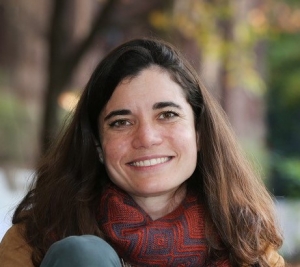
I am a psychiatrist and neuroscientist specialized in the study of consciousness and its alterations in psychiatric disorders or by the use of substances. After completing my PhD in 2018 under the supervision of Professors Stanislas Dehaene and Raphaël Gaillard (Neurospin Unicog), I worked at Hospitalo-Universitary department of Sainte Anne Hospital in Paris as the head of a unit for patients with treatment-resistant psychiatric disorders and did a postdoctorate at Yale University in the Anticevic Lab. Currently, I lead research on psychedelics at the Institut de Neuromodulation and serve as the principal investigator of France’s first psilocybin trial for depression. I also co-founded the Psychedelic Medicine section of AFPBN.

